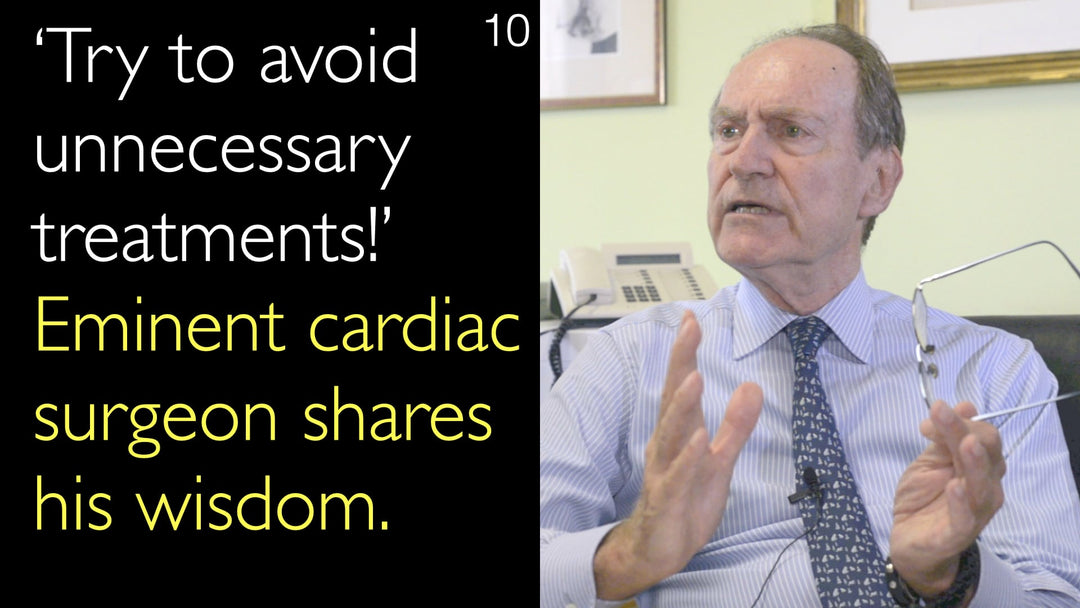Leading cardiac surgeon Dr. Ottavio Alfieri, MD, emphasizes the importance of personalized treatment in heart valve disease. He advocates for tailoring treatments to each patient's unique genetic and clinical profile, especially in older and fragile patients. Dr. Alfieri introduces the concept of "skillful neglection," focusing on essential treatments and avoiding unnecessary interventions. He stresses simplicity and effectiveness in treatment plans, ensuring they address the core issues affecting patient well-being.
Personalized Treatment in Heart Valve Disease: Insights from a Leading Cardiac Surgeon
Jump To Section
- Importance of Personalized Treatment
- Unique Patient Profiles
- Skillful Neglection in Treatment
- Focus on Essential Treatments
- Simplicity and Effectiveness
- Full Transcript
Importance of Personalized Treatment
Dr. Ottavio Alfieri, MD, highlights the critical need for personalized treatment in heart valve disease. He stresses that each patient is unique, with distinct genetic and clinical profiles. Personalized treatment ensures that therapies are tailored to individual needs, improving outcomes and patient satisfaction.
Unique Patient Profiles
Dr. Ottavio Alfieri, MD explains that every patient has a unique genetic makeup and life history. These factors, along with personal preferences, should guide treatment decisions. Recognizing these differences allows for more effective and patient-centered care, particularly in heart valve disease management.
Skillful Neglection in Treatment
Introducing the concept of "skillful neglection," Dr. Alfieri advises focusing on the most critical aspects of a patient's condition. By avoiding unnecessary treatments, healthcare providers can concentrate on interventions that significantly impact patient well-being, especially in older and fragile individuals.
Focus on Essential Treatments
Dr. Ottavio Alfieri, MD emphasizes the importance of addressing the core issues responsible for a patient's discomfort. By targeting essential treatments, physicians can reduce the burden of disease and improve quality of life. This approach is particularly beneficial for older patients who may not tolerate extensive interventions.
Simplicity and Effectiveness
Dr. Alfieri advocates for simplicity and effectiveness in treatment plans. He suggests avoiding overly complex or prolonged therapies, instead opting for straightforward solutions that directly address patient needs. This philosophy has guided his clinical practice and contributes to better patient outcomes.
Full Transcript
Dr. Anton Titov, MD: Professor Alfieri, is there a topic or a question that I didn't ask but should have asked? Is there anything in your interest or your experience that you'd like to share?
Dr. Ottavio Alfieri, MD: During our full conversation, we touched on many points. I think that one thing, one message, should be very, very important. Every patient is unique. The genetic profile of the patient, the wishes of that patient, the history of the life of a patient up to the present time. Every patient has the right to choose whatever treatment he likes. Also, the clinical profile can be very different from patient to patient.
A very important message is that we have to personalize the treatment very much. We should not give the same treatment to everybody, and the therapy should be very much personalized. So, I think that is a very important aspect to consider in the modern treatment of heart valve disease.
The other important point I think is this. Particularly when we have older and fragile people, we have to treat the most important aspect of the disease. It is what I call 'skillful neglection.' Try to avoid unnecessary treatments. Really try to just focus on the important aspect of treatment that can reduce the problem of the patient.
So I think that is a very important aspect which has to be taken into consideration. A doctor has just to address what is responsible for the not-well-being of the patient. And this is particularly important for older and fragile patients.
The other important thing is the simplicity of the treatment plan. Try not to do things in a very sophisticated way or to prolong the treatment of the patient. Just be simple and effective, and address the problem of that particular patient. So these are the principles that have been the basis of my clinical practice all the time. I think they should be taken into consideration for the well-being of the patients.
Dr. Anton Titov, MD: Professor Alfieri, thank you very much for sharing your wisdom and knowledge, but much beyond that. It's a pleasure to have this conversation. We hope to come back to you in the future as cardiac surgery, and all the specialties around cardiac surgery are further developed. Thank you very much!
Okay, thank you. It was a very nice conversation. I enjoyed talking with you. And I hope that some patients can also take advantage of our conversation. Thank you. Thank you!




